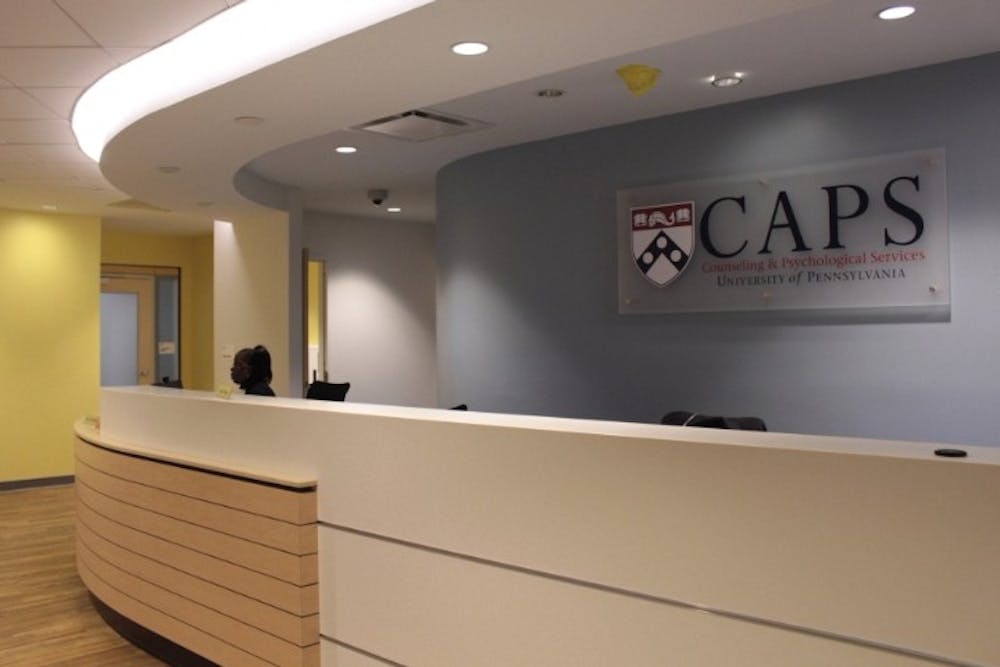Over the past few years, Yuhong He — a therapist at Counseling and Psychological Services — has noticed that most of the students showing up to CAPS’ international student support group were Chinese international students.
He decided to do something about it. For the first time this semester, CAPS is offering a peer support group in Mandarin for Chinese international students.
While most universities, including Penn, offer services for international students, He wanted cater to the large population of Mandarin-speaking students, which make up 2,000 of Penn’s 6,000 international students.
In individual sessions, international students often have family pressures and concerns about getting work visas that allow them to stay in the country. Since financial aid for international students is limited, studying at Penn can be a hefty financial investment.
Lily Zhang, the senior associate director of International Student and Scholar Services, has also noticed certain barriers that are unique to Chinese international students.
“I think we kind of anticipate they will experience certain challenges like the culture shock, language barrier and also I think [the] overall education system in China and the U.S. are different,” Zhang said. “We can obviously see in some aspects they do struggle because certain social norms are different.”
He has also found that many Chinese internationals find it hard to integrate socially.
“I have so many students who say ‘How do I make friends with American students?’” she said. “They don’t know how to, or when they want to [do] that sometimes those interests may not be reciprocated.”
She finds that many students’ issues stem from being in a cultural minority for the first time and from their identities as people of color. While He says many students experience both overt racism and microaggressions, she feels they might not describe them as such.
“A lot of them tend to attribute those difficulties to their own deficits or their own language or not understanding the culture,” He said. “They don’t necessarily label their experiences with racism or racial discrimination or all those terms that people from this culture might be more familiar with. But I wouldn’t say that they don’t have those experiences ... it can affect their sense of confidence and bring into question their identities.”
She hopes this group will relieve some of the pressure on students to adapt to American culture.
“Providing these groups feels like a way of promoting social justice for the students,” He said. “Just by allowing the language access, it’s a way to be doing justice for them rather than just asking them to conform or adapt.”
Zhang also believes the group will provide essential services for students who speak English as a second language.
“I think in general people from China, when they have language barriers, they possibly will be a little more hesitant to voice their struggle,” she said. “So I think for Yuhong, for CAPS to have a specific language setting that they will not feel pressured, or not feel difficult to describe their feelings — it’s a good thing.”
The first meetings have had low turnouts, which He attributes to administrators’ struggles to advertise the group, as well as students’ busy schedules preventing them from prioritizing their mental health.
“Like many Penn students, mental health takes a backseat,” He said. “So even though this really can meet needs of students they may not see it to be immediately beneficial.”
Among the four to five students that come to each session, He has been impressed by the willingness of participants to share their experiences.
“I was actually quite amazed by the group in terms of how quickly people just share about their own very private even sometimes painful experiences of being here as a Mandarin-speaking international student,” He said. “I feel like the group was kind of connected in a way that was quicker than I expected.”
He is in a unique position to help Chinese internationals as a Mandarin and Cantonese speaker, but she hopes to see more services tailored to specific international students, rather than as a single group.
“I do hope that maybe at the university level we can provide more services that feels a little bit more culturally specific or culturally effective,” He said. “I still feel the need to provide this group to allow a space for students that can really feel like they feel safe and can develop something that feels meaningful, that feels deeper. Because that’s what a lot of students are longing for.”









